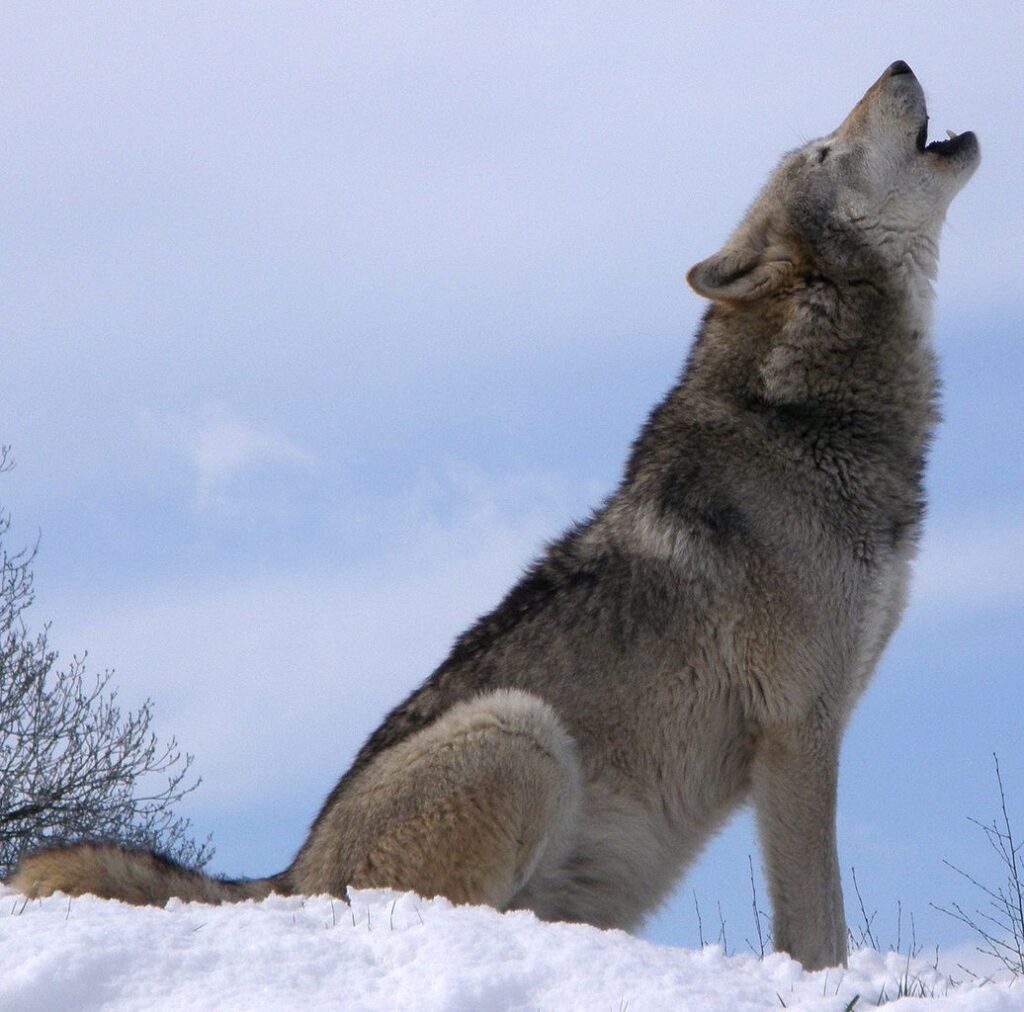
Rainforest Rescue: Chocolate has a dark side: Millions of children are forced to work on plantations, with little hope of pulling themselves out of poverty. In many places, the expanding plantations are eating their way into protected rainforest areas. As Germany is the largest cocoa market in the European Union, regulation with teeth can only be realized if the German government is on board. The German cabinet, however, disagrees over how to deal with the issues of deforestation and child labor. While the Development Ministry is in favor of a proactive approach, the Agriculture Ministry is digging its heels in.
>>>Urge German Federal Minister of Food and Agriculture Julia Klöckner to promote cocoa sector regulations that help prevent child labor, human rights violations and deforestation.
Humane Society of the United States: The Preventing Animal Cruelty and Torture (PACT) Act will make it a federal crime to commit malicious cruelty to an animal on federal property or in interstate commerce. Federal law already prohibits animal fighting, as well as the creation and trade in obscene video depictions of animals being crushed, burned, drowned, suffocated, impaled or subjected to other forms of egregious cruelty—but the underlying cruelty itself is not banned. The PACT Act will create a federal anti-cruelty statute that complements the cruelty laws in the 50 states.
>>>Urge your representative to co-sponsor H.R. 724, the Preventing Animal Cruelty and Torture Act.
NRDC: The rusty patched bumblebee’s population has plummeted in recent decades due to habitat loss, pesticide use, climate change and other threats—leading to its official endangered species listing in 2017. But more than a year later, the U.S. Department of the Interior has failed to set aside protected habitat for the bee—violating the Endangered Species Act.
>>>Tell the Interior Department to follow through on bee protections.
Total Liberation International: Despite being Australia’s national symbol, millions of kangaroos are slaughtered—the largest land-based killing of wild animals in the world. In 2018 alone, nearly 7 million kangaroos will be killed. Many of these kangaroos end up as pet food sold on Chewy.com, a leading online retailer of pet food and supplies. This is an Australian government-sanctioned bloodbath and Chewy is complicit. It is a mass-scale profit-driven slaughter of kangaroos for their meat, leather and pelts. Adult kangaroos are shot. Hundreds of thousands of joeys (baby kangaroos) are clubbed, shot or decapitated after their mothers are killed. And, larger young but non-pouched orphaned kangaroos are left to die. Like the African elephant, kangaroos could be eliminated completely due to slaughter on a massive scale.
>>>Urge Chewy to stop supporting the slaughter and stop selling kangaroo meat.
Southern Resident Killer Whale Chinook Salmon Initiative: The 75 remaining wild critically endangered salmon-eating southern resident orcas off the coast of Washington state are dying from starvation, leaving an effective breeding population of less than 30—near the point of no recovery. More than 50 percent of their diet comes from salmon in the Columbia Basin, half of which are from the Snake River System. The orcas can be saved if they can access this salmon, which can be done only if the state government breaches the Lower Snake River Dams.
>>>Urge Senator Patty Murray and Governor Jay Inslee to direct the Army Corps’ General Helmlinger and Bonneville Power Administration’s Elliot Mainzer to begin breaching dams in 2019.
This is not good…

Digging our own grave: A NASA-led study of Thwaites Glacier in West Antarctica (above) has made “several disturbing discoveries,” including a massive cavity—two-thirds the area of Manhattan and nearly 1,000 feet deep—growing at the bottom of the glacier, which is rapidly disintegrating due to anthropogenic climate change. “The findings highlight the need for detailed observations of Antarctic glaciers’ undersides in calculating how fast global sea levels will rise in response to climate change,” the agency writes. (Photo credit: Jeremy Harbeck/NASA/OIB) - NASA discovered a ‘disturbing’ glacier hole two-thirds the size of Manhattan (Motherboard)
- Climate change is already driving mass migration around the globe (NRDC)
- Trump administration appeals ruling that blocked Keystone pipeline (Associated Press)
- Feds to sell even more public land for fracking near sacred park (EcoWatch)
- EPA’s Wheeler continued frequent meetings with industry his agency regulates (CNN)
- Sixty percent of wild coffee species are at risk of extinction due to climate change (A Greener Life, A Greener World)
Round of applause…

- Gray wolves will keep California Endangered Species Protection (Earthjustice)
- Carl’s Jr. airs plant-based meat during during Super Bowl 2019 (One Green Planet)
- The UK’s carbon dioxide emissions have declined by around 38 percent since 1990, faster than any other major developed country (Carbon Brief)
- Animals scored significant victories with the 2018 Farm Bill (Truthout)
- Global investors urge fast food chains to think about climate change (Care2)
- Congress moves to protect nearly 20,000 acres of Tennessee wilderness—the first new public land protections in the state in 30 years (Pew Charitable Trusts)
- Illinois ranks #1 in 2018 State Animal Protection Laws Ranking Report (Animal Legal Defense Fund)
- New animal overpass is already protecting critters in Washington State (Smithsonian)
- Flamingo haven Gediz Delta saved from mega-bridge construction (Birdlife)
- The best of 2018 wildlife photography awards—in pictures (The Guardian)
Parting thought…
“The butterfly flitting from flower to flower ever remains mine. I lose the one that is netted by me.” —Rabindranath Tagore
Earth | Food | Life (EFL) explores the critical and often interconnected issues facing the climate/environment, food/agriculture and animal/nature rights, and champions action; specifically, how responsible citizens, voters and consumers can help put society on an ethical path of sustainability that respects the rights of all species who call this planet home. EFL emphasizes the idea that everything is connected, so every decision matters.
Click here to support the work of EFL and the Independent Media Institute.
Questions, comments, suggestions, submissions? Contact EFL editor Reynard Loki at [email protected]. Follow EFL on Twitter @EarthFoodLife.
